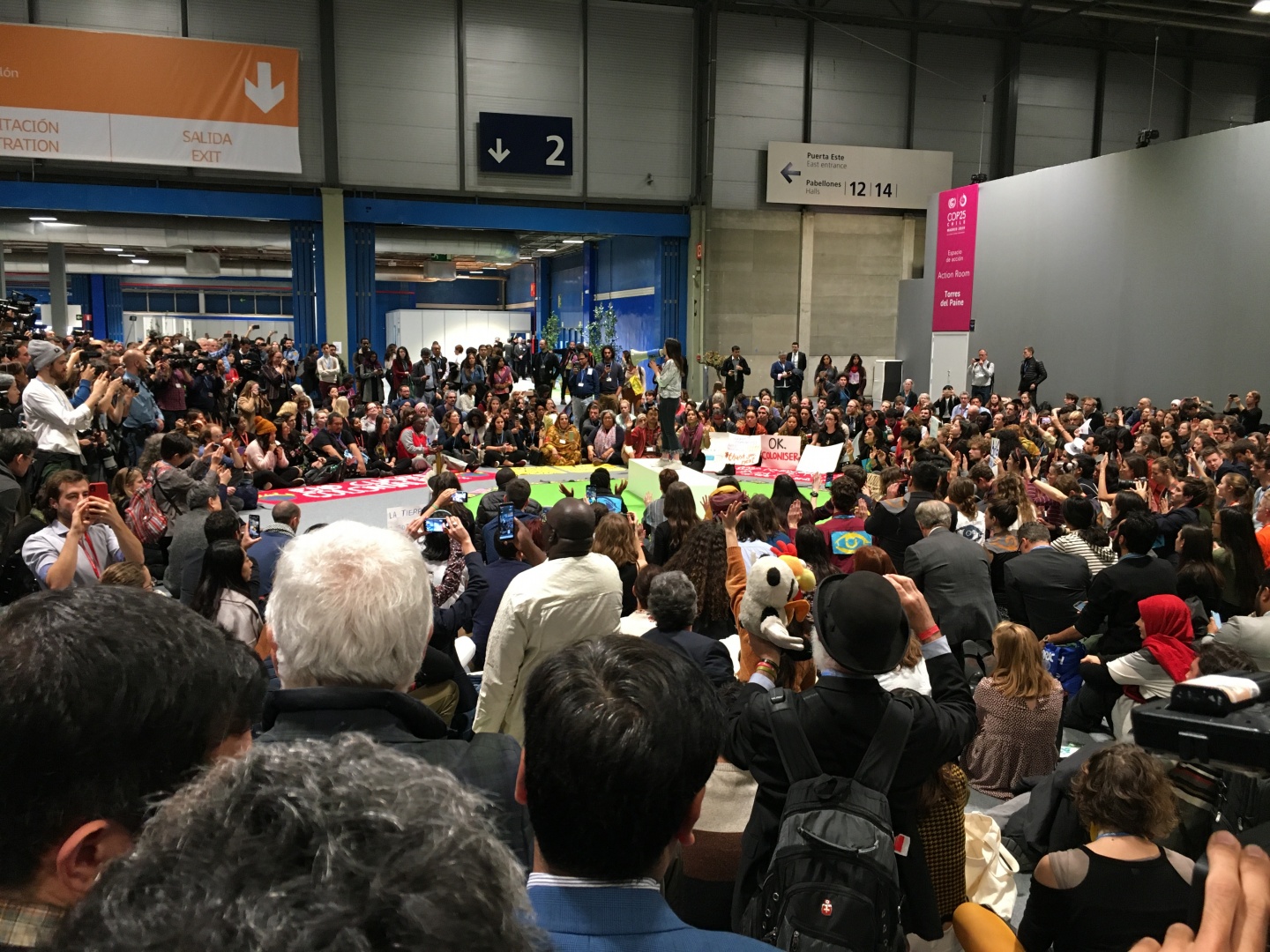13 December, 2019IndustriALL sustainability director, Brian Kohler reports from COP25 in his blog.
COP25 – the very name makes it clear that this conference has been meeting annually for 25 years. There have been high points – like COP21 in Paris, where the Paris Agreement was reached; and COP24 in Katowice, where the Silesia Declaration on Just Transition was made – as well as low points, like Copenhagen’s COP15. Still, after 25 years of these, the world still is on a course towards catastrophic climate change.
The high point of these two weeks would be the roll-out of the Climate Action for Jobs Initiative. The ILO has long hesitated to take a leadership role in the climate debates; but it is essential that the jobs issue – the future of work in a carbon-constrained world – be taken up by them. However, this roll-out is a side event, not part of the COP25 discussions per se.
The low point is hard to pinpoint; rather there has been a sort of dispirited mood over much of this COP. The USA’s promised withdrawal from the Paris Agreement has emboldened a few other countries (who are still in) to prioritize narrow self interest and political theatre over progress. That tendency might have been overcome with effective leadership; sadly, that has been lacking. It should not be overlooked that this COP is being held in Madrid, after first Brazil, then Chile, reneged on their promises to host it. This speaks to the politics of discontent that are spreading across the world. The fact that unprecedented numbers of people are protesting and demanding climate action seems to have escaped the notice of at least some of the negotiators here.
The following comments reflect the situation as I know it as of Friday afternoon, 13 December. There is still a possibility of change before the ending of this COP, particularly as there are now rumours that the talks may be extended to Saturday, or even Sunday.
At the time of writing this blog entry, then, here is the state of play:
* although some new financial commitments have been made, the finance mechanism is still inadequately funded, in particular to address the concerns of climate-related loss and damage,
* Article 6 (carbon emissions trading mechanism), remains unresolved, we can not accept any deal that creates loopholes in the Paris Agreement,
* issues that should have been uncontroversial like establishing common time-frames for reporting and action, have been mired in pointless argument,
* efforts to address the gender dimension of climate change resulted in a bare minimum,
* trade unions wanted much more ambition and much stronger commitments to Just Transition from this COP, in discussions of climate response measures and elsewhere. We were successful in having Just Transition referenced in the Workplan on Response Measures; but there is no clarity on how they will be actualized. We also have the roll-out of the Climate Action for Jobs Initiative, a significant win for trade unions; and not forgetting that the Just Transition words in the Paris Agreement still stand. However progress in the formal outcomes of COP25 has been limited despite our best efforts.
So another opportunity has not been fully utilized, and we can only hope that COP26 next year in Glasgow, Scotland will do a better job. That is the year where Nationally Determined Contributions (NDCs) will be revised. Trade Unions therefore have one year to put pressure on their governments to sign up to the Climate Action for Jobs Initiative, and to integrate Just Transition measures within their NDCs.
The UNFCCC will have work to do, calculating how much more ambition is needed in member states’ NDCs to reach the Paris goals. In any case, we will be looking for COP26 to deliver the stronger ambition and social commitments, human rights, labour rights, and Just Transition, that we need in the revised NDCs.
You may have noticed that the USA has been waging war on the World Trade Organization recently, refusing to allow the appointment of adjudicators. There are multiple reasons for this, of course, but I do not think that this is unrelated to the climate talks. Upon their formal withdrawal from the Paris Agreement next year, the USA would – in theory – be vulnerable to trade-related accusations that their failure to commit to climate action amounts to an unfair subsidy of their industries. Pulling the WTO’s teeth would make it much less likely for them to be held accountable in this area. Avoiding all responsibility seems to be the motive.
This is my second-last report from COP25. The final one may be tomorrow, or Sunday, or even Monday – as talks are now being extended. However I must now leave Madrid. In any case opportunities to influence the Parties are now very limited since most of the remaining meetings are closed sessions. The trade unions, along with other civil society groups: women, indigenous peoples, youth, have done our best. We have been well-prepared, we have been loud, we have forceful with our logic, we have been passionate in our beliefs. When the official results of this COP are published, we shall see how successful we have been. Perhaps some of the unresolved issues I have listed above, will have been resolved.
I will make a final report at that time.
